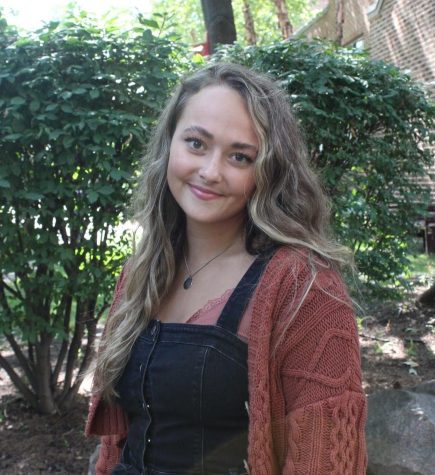Drawing parallels in global history
April 6, 2021
Over the last year, we have felt more than ever something some may have never even considered before: life is tough.
This is now a thought that is pondered and discussed almost daily, and I question if this is just a part of growing up as I further immerse myself into adulthood, or rather if life’s magic is being stolen by a plague stealing thousands of lives worldwide.
As nearly a century has passed since the Great Depression, we study in our classrooms the substantial effects the 1920s and more specifically the year 1929 had on the following decade, not to mention the immense influences it has had on American life since.
So much has changed since the 1920s and the 1930s.
Most American families can afford a car, or two. Milk is roughly $3.50 per gallon instead of 35 cents. The internet was born, launching a technological takeover. The nuclear family is rare rather than the norm. Human rights for people of diverse ethnicities, races, religions, sexual orientations and genders have been acknowledged, although we still have so much further to go. World War II was fought and won. Sept. 11 has become an annual day of national mourning. Netflix has become America’s pastime and newspapers have begun to fade out of everyday lives.
Yet, so much seems the same.
This makes me wonder, though, what effect the COVID-19 pandemic will have on the world in the near and extended future, perhaps eliciting permanent change in our country, and in our world, as the Great Depression has.
Like the Great Depression, the COVID-19 pandemic has affected the whole world in one way or another.
COVID-19 is a pandemic that has been stealing the lives of thousands of human beings for over a year now, but the depression and the effects of this exhausting and traumatizing time period will arguably live on longer than we will.
Will we wear a mask every flu season? Will we be required to get the COVID-19 vaccine to go to work or to school, or will it be an option?
Will small businesses change the way they operate to better prepare for shutdowns? Will more restaurants become take-out only?
Will we have to have our temperature taken every time we walk into a building or before we leave for school or work?
Will we keep gatherings small and shudder every time someone has a tickle in their throat?
Will hospitals be stocked up on personal protective equipment and hazmat suits at all times? Will more and more people enter the medical field to prepare for the next deadly disease?
Will our government always have an allocated budget for medical equipment and citizen relief so no American goes without care when ill, and no family struggles during a global crisis?
Will more people enter the field of psychology, attempting to halt the climbing depression and suicide rate and change the trajectory of mental health? Will mental illness be taken more seriously, especially in times of nationwide or global crises, increasing the amount of resources and psychiatric care and a decrease in stigma, costs and wait time?
The changes this era in American history may cause are innumerable, and I ponder the extent of the changes that will be made in our everyday lives as a result of this pandemic.
More positively, will we be grateful for the beauty that comes from a time so grueling? We are thankful for the security of banks and the regulations made for the stock market following the Great Depression, which allow us to trust financial institutions with our hard-earned money.
Are we for or opposed to the government’s increased role in our financial matters even a century later as a result of the era?
Our eldest members of society who felt the most harsh impacts of the Great Depression have adapted their lives by means of hoarding food, becoming frugal with their money, mistrusting banks and being suspicious with the stock market. Will we too change our societal norms so greatly that our grandchildren or great-grandchildren will analyze our behavior in relationship to the COVID-19 pandemic?
These are questions that may find their answers as months turn to years and years turn to decades.
Perhaps, as we read about the Great Depression in our American History courses with a great sense of solemnity and mourning, future American students, and more broadly students globally, will study the most recent plague to infect the world, COVID-19, which arguably is an anomaly in a time where modern medicine appeared to be ahead of the game.
ALI SMITH





